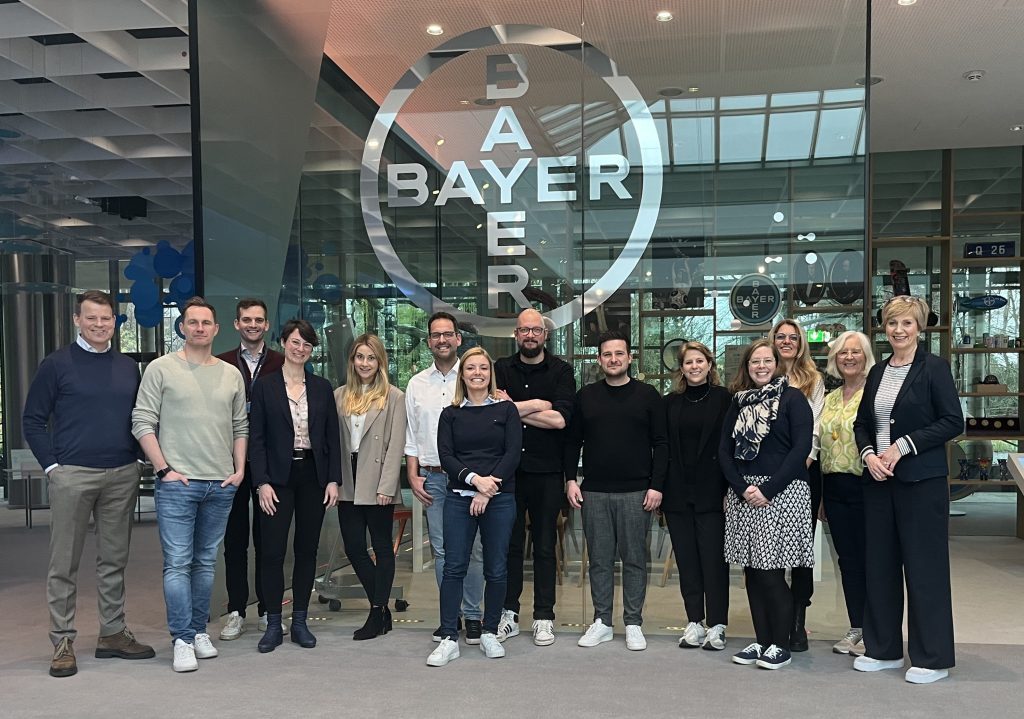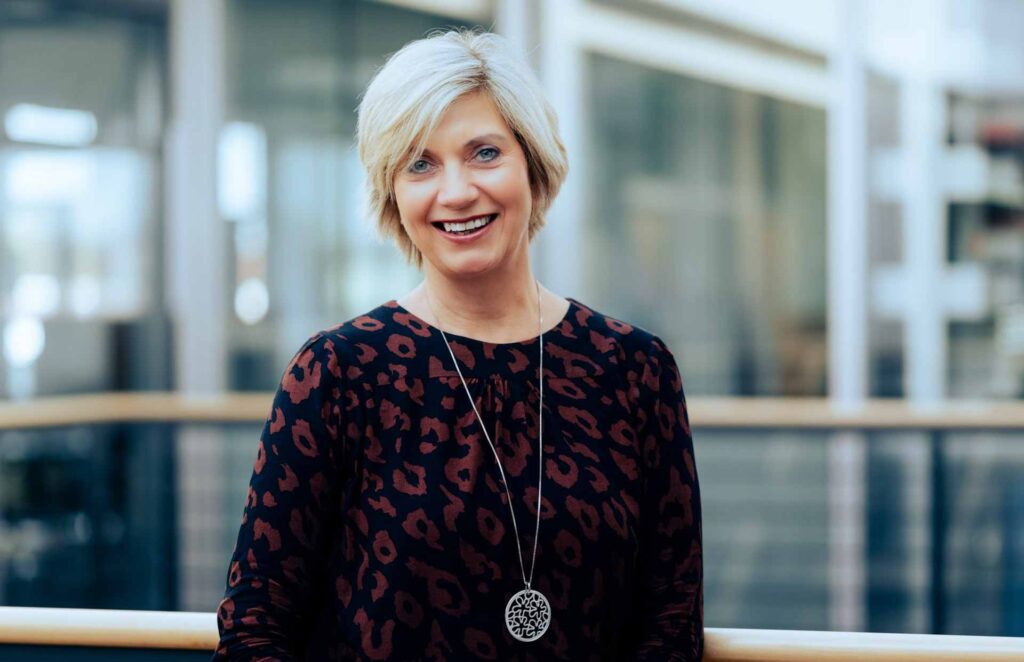March 20, 2024
Following Module I in October 2023 – which focused on introspection, self-management and peer group learning – one of the participants invited the group of young leaders to meet at BAYER AG in Leverkusen. Axel Hamann, Head of Internal Audit & Risk Management at BAYER, joined the group to explain how he views leadership in practical terms and to answer any questions the participants might have. He spoke about the company’s recent transformation and Dynamic Shared Ownership, its new corporate strategy, which turns traditional corporate structures on their head.
Such transformations are complex. The training looked at the difference between complicated leadership situations and complex challenges. Almost every company and every manager is increasingly faced with complex situations. A problem is complicated if it can be solved with more knowledge – when a machine malfunctions, for example. Complex problems are measured by the number of surprises a system produces – when people are involved as success factors in sales or management, for example. The relevant question for complicated problems is: How does this work? For complex problems it is: Who can handle this? And what principles do they rely on? One of the main traps that leaders fall into is thinking they need a recipe to solve complex challenges. At best, such recipes are only randomly successful.
If greater knowledge won’t help leaders act more effectively, what will? Fortunately, unlike machines and AI, we humans are made of more than just our rational minds and thoughts. Emotional intelligence, intuition, the gut instinct a manager might feel during a meeting – these things should all play a greater role in the business world. Every inner perception is information that can be very useful for making the best possible management decision. Conflicts in organizations often result from interpersonal disagreements. If managers do not consider interactions on this level, they are being too short-sighted and the problem will most likely manifest again as a similar or new conflict.
In addition, participants also discussed the “expanded toolkit.” Managers often talk about “difficult employees,” effectively pigeonholing them. It’s worthwhile, however, to approach such situations by asking a different question, namely: “What in our organization is giving this person an incentive to act like this?” The answers shed new light on the situation and generate new perspectives. Different elements – the organization’s meeting culture, individual goals, employee evaluations, feedback platforms, the dress code, the transparency of communications – can be used to steer things toward a better outcome. Many participants found this input from trainer Martin Groß eye-opening and very useful.
As they emphasized in their feedback, the managers felt that the intensive exchange with the others was especially valuable, as was the considerable trust exhibited during the peer support sessions when sensitive subjects were being discussed. The beneficial nature of the training even prompted the participants to travel from different parts of Germany to Cologne the evening before the second module began in order to have dinner together, and to continue meeting afterwards on their own, independently of the Liz Mohn Foundation.
And this is precisely our intention: to bring leaders from the worlds of business, politics and culture together so they can broaden their perspectives, explore new ideas and reignite their desire to lead!
The next Future Leadership Training will take place April 17–19, 2024 and is once again fully booked.

